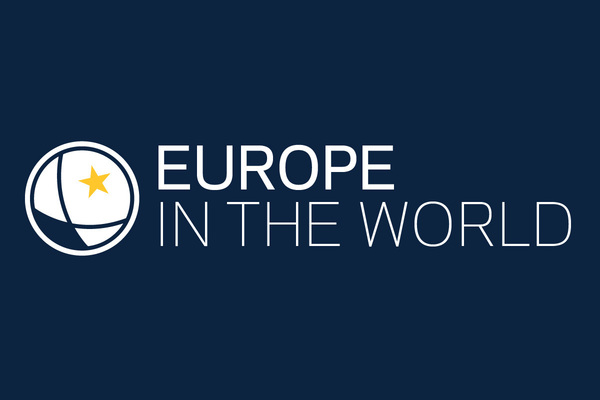
In recent years, Europe’s role in the world has become increasingly uncertain, and its relationship to other nations has undergone a series of profound transformations. Throughout the presidency of Donald Trump, the transatlantic relationship was exposed to a number of stress tests, and European leaders and publics alike have begun to question whether a political reorientation is necessary. At the same time, Europe’s economic relationship to a rising China has taken on new forms, as China has stepped up its strategic investments on the continent. The United Kingdom’s vote to leave the European Union has shaken the European project to its core, and it remains to be seen whether it marks the beginning of a new era, either within Europe or in Europe’s relationships to its immediate neighbors. The continent also confronts the question of how to approach the issue of migration and how to define its relationships with its former colonies. And last but not least, Russia’s renewed assertiveness has many policymakers and pundits alike worried about what appears to be a general disregard for the importance of defense and security policy.
What unites these issues is their inherent complexity – and the fact that academic work across various disciplines has long sought to analyze and understand them. All too often, however, important scholarly insights and advancements fail to inform and guide the general discourse because they never make it into the public sphere. Academic articles and books are often inaccessible to the public, both in terms of their language and their mode of publication. Furthermore, scholars at times do not explicate the relevance of their work for current policy issues.
We have founded Europe in the World (EITW) to redress these shortcomings. In line with the Nanovic Institute’s commitment to exploring the evolving ideas, cultures, beliefs and institutions that shape Europe today, EITW provides a public-friendly, intellectually diverse forum for informed discussion of Europe’s political, economic, and social relationships with the rest of the globe. In their comparatively short, digestible articles, contributors draw on their own research and experience to illuminate events and trends in modern Europe in a way that helps bridge the gap between the academy and the general public.
The first two featured EITW articles exemplify the mission of the publication in exemplary fashion. Drawing on his extensive archival work the origins of the Second World War, Ian Ona Johnson’s “The Long Shadow of 1939: The Molotov-Ribbentrop Pact and the Politics of Memory in Eastern Europe,” makes the case that the war still retains crucial symbolic significance in Eastern Europe today. He argues that it is difficult to understand current EU-Russian relations without an appreciation of the political battle that is still fought today over how to write and remember the history of World War II. Similarly, in his piece “EU Vaccine Diplomacy: Will Slow and Steady Win the Race?” Justin McDevitt utilizes his research on the politics of COVID-19 to illuminate how the procurement and distribution of SARS-CoV-2 vaccines has become a crucial issue in international politics. Specifically comparing China’s approach to vaccine diplomacy—which emphasizes speed— with that of the European Union—which emphasizes caution and quality—he argues that the latter approach might still turn out to be the more successful in the long run. In doing so, he provides his readers with both a comprehensive overview of the status quo as well as an informed prediction of how the vaccine race will unfold in the near future. Finally, we are also looking forward to sharing with you several other pieces in the coming weeks, covering a wide array of topics ranging from Irish immigrant identity and literature to Russia’s resurgence and its effect on European security.
Starting today, we are looking forward to receiving submissions from faculty, postdocs, graduate students, and practitioners in their respective fields that share our commitment to making academic research both accessible and policy relevant. Possible topics we hope future pieces will cover include, but are by no means limited to: international relations, political economy and international economics, inequality, human rights, climate change, migration and immigration, nationalism and populism, legal studies, cultural policies, European identity and society, and post-colonial relations. For detailed information on our submission process, please consult our submission guidelines.
Overall, we are excited to embark on this journey with you and do our part to facilitate the dissemination of important academic analyses and insights into the public sphere.
Moritz Graefrath and Alec Hahus
Editors, Europe in the World